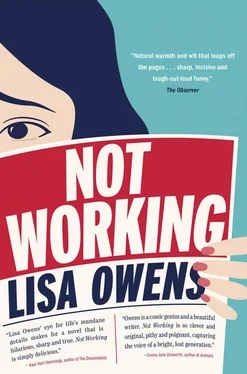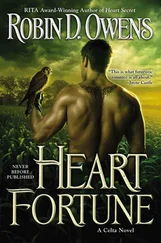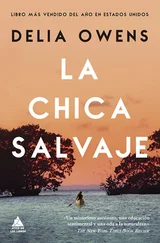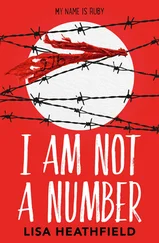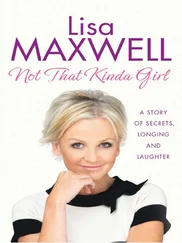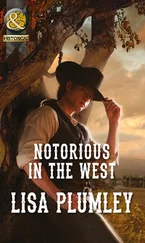“There’s always a bed for you here if you want it, Clairie.” She hasn’t called me that since we were about twelve years old and I feel a sting of sadness — but also gratitude, that she is still by my side after all this time.
“You’re the best,” I say, gripping her to me in a soft, fragrant hair-and-cardigan bundle.
I wake up and lean my forehead against the cold window. In the dark, I make out rows of parked double-decker buses: big, silent beasts like sleeping whales.
The doors are open, though the driver’s nowhere to be seen, and dazed, I make my way out of the depot to the road, where I wait fifteen minutes on the pavement for an unlicensed car service to drive me across the city to my flat, and charge forty-six pounds for the privilege.
Six-plus months and who-knows-how-many split ends: I can defer this haircut no longer. Though I’ve been going to the same place for five years, my visits are so infrequent and my presence clearly so insipid, I’m greeted like a new client every time.
“Tell me,” demands my stylist, Giulia, a fierce, tiny tattooed person whose asymmetrically cut hair is bleached white and buzzed so her scalp shows through on one side. When I release mine from its ponytail, it drips forlornly down my back.
“Well, it’s clearly a disaster. Look at these ends,” I say disloyally, like an embarrassed parent siding with a disapproving teacher. I take a random section between my fingers and hold it up for inspection. Giulia agrees with a frowning nod, and under the too-bright lights and ubiquitous mirrors, the ambitions I had for a big change desert me. “So…I guess just tidy it up, take off however much you need.” I karate-chop a hand to my chest. “Here? What do you think?”
She pouts. “Do you want all one lengse, or do you want the layer?”
“What do you think?”
A shrug. “All one lengse is easy for me.”
“Right, but will it look better? In your opinion?”
She peers at her watch and then at me in the mirror. “I sink so. Hell -see-er. Come.” She ushers me over to the sinks, snapping on a pair of latex gloves like a rebuke.
—
Back at the mirror, she sets to work, making frequent, brusque corrections to the position of my head. Meanwhile, a few stations down, another stylist and her charge animatedly compare notes on a series of implausible common passions: martial arts, Ethiopian food, a Bulgarian electronica festival. When it turns out they share a favorite book — an obscure-sounding Scottish novella from the eighties — it’s only fear of fanning the flames of Giulia’s ire that stops me looking around for hidden cameras, to check I’m not the subject of some cosmic, highbrow gotcha.
The magazine I was offered hasn’t arrived, and after a brutal stretch of silence, I ask in desperation, “Busy afternoon?” to distract from the moonlike pull of my reflection.
“Yes. Please, down,” she says, pushing my skull forward so all I can see is the soft indignity of white middle flesh oozing through my bunched shirt.
I look up in surprise when not much later she sets down the scissors and reaches for the hair dryer.
“You’ve finished already?”
“Yes. So. Do you normally blow it a-dry?” she asks.
“Oh, no, I don’t normally bother.”
Until I was twelve or so, my mother insisted on drying my hair for me, convinced some indeterminate Olden Day malady would carry me off if she didn’t. No doubt the stories we read together at bedtime, about kindhearted invalid children doomed to die tragic deaths in dark winters didn’t help. But when puberty hit, I found myself on the lookout for low-risk, high-impact ways to rebel and — too proud to let things slide at school, too scared for cigarettes or boys — I seized upon our morning hair-drying ritual. I would storm off to school with soaking shoulders, slamming the door against my mother’s bitter protestations.
“I sought so.” Giulia puts a hand on my shoulder, and her face next to mine. “But the heat and the movement? For you, it’s good. Even just-a fast blast. To make it less…” She affects an expression suggesting flatness, limpness, despair, with impressive eloquence. “It make it better. More…”
“Thicker?” I suggest.
“Alive!” she cries happily over the hair dryer’s roar.
Hurrying past my old office building, I can’t help myself looking in the window. Geri and Jonathan are crowded round a phone receiver, gesticulating excitedly. The office has been decorated for Christmas— how is it December already? — with the usual lopsided artificial tree garlanded in colored lights and way too much tinsel. On the windowpanes I note a new touch, white tissue-paper snowflakes and red tissue-paper letters stuck on to spell out “ho, ho, ho”—though to anyone on the outside, like me, it reads, “oh, oh, oh.”
Luke and I return home at nine p.m. on Christmas Day, from the flat his family have been renting nearby. I’m exhausted from non-stop eating and small talk: Luke was called in to work for several hours before dinner, and I kept up a bright stream of chatter in his absence, hoping it wouldn’t become apparent to anyone else that without him there, I was effectively gate-crashing some strangers’ sacred Christmas traditions.
In our living room, we sink into the sofa and I pull on my gift from Luke’s mother: a pair of novelty pig slippers, which make an oinking sound when you press the snouts.
“Hard to know how to take these,” I say. “They’re so clearly not your mum’s style. Is this how she sees me?” I paddle the pigs up and down.
“I really wouldn’t overthink it if I were you,” says Luke; but then, he got an iPad mini.
—
At around ten p.m., I get a phone call from my father. The line is crackly and barely audible.
“Ship to shore! Ship to shore!” he keeps repeating, clearly possessed by the festive spirit. My mother is conveniently engaged in the final round of a heated charades tournament along with some of their table companions.
“It’s her turn right now, so she can’t speak,” he says.
“Literally!” Grandma crows in the background, then screams, “THE EXORCIST!” several times before the line goes dead.
“I loved spending Christmas with you,” says Luke, wrapping himself around me.
“I had a great day.”
“Hope you didn’t miss your parents too much.”
I think of them and Grandma out on the dark sea, listing gently in their cabin beds.
“We always do what you want to do,” I say. It’s late afternoon on New Year’s Eve. Fanned out on the duvet is a selection of DVDs, all with subtitles, from some best-ever list Luke is making us work through.
“Yes, we do always do what you want to do,” Luke says.
“Simply not true. I do loads of things now that I never did before you.”
“For example?”
“Watch boring films. Foreign! Sorry, I meant foreign. Watch foreign films — I never used to do that.”
“Anything else?” he asks.
“Leave parties early.”
“Anything good? Any positive things?” he says, climbing on top of me, bracing his knees to my sides.
“Eat more veg? That’s a good thing. And wrestling. Before you, I hardly wrestled at all.” I grab his wrists and attempt to topple him, but we both know that’s not going to happen.
“Do we have to go to this thing tonight?” he says. We’re supposed to be going to a New Year’s Eve party with my school friends in a bar charging twenty pounds for entry alone. “Can’t we stay in and hang out instead?”
Читать дальше
